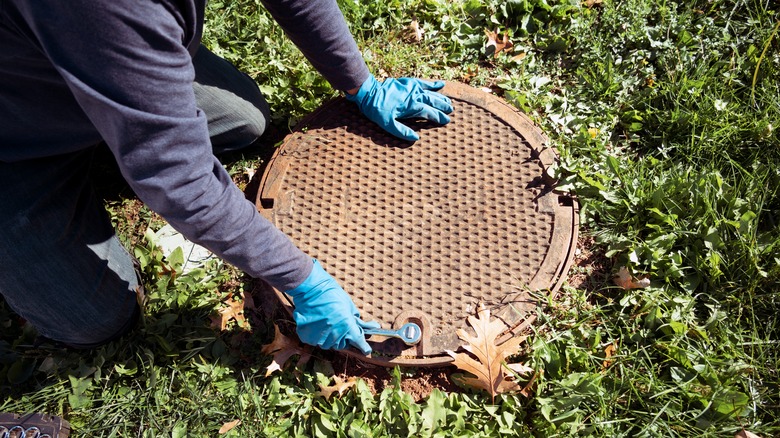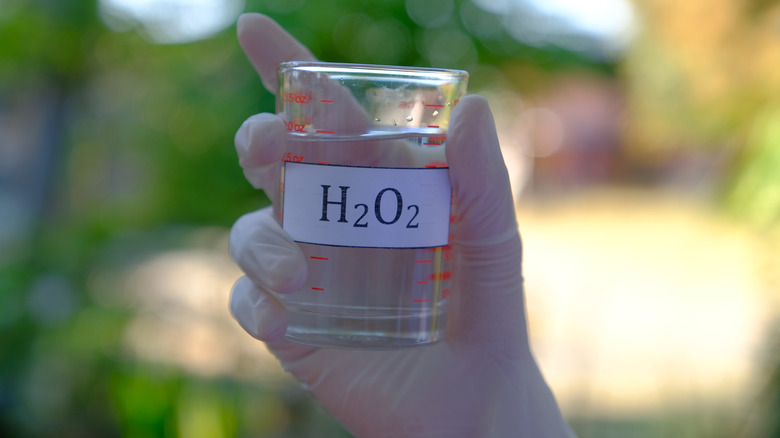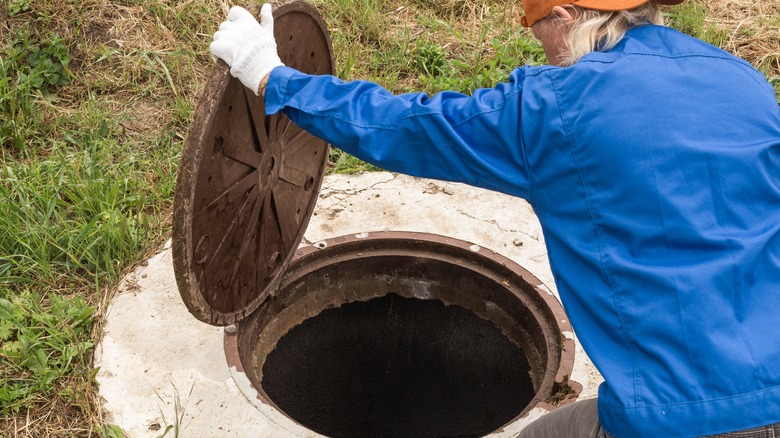Is Hydrogen Peroxide A Safe Additive For Your Septic Tank?
In the past, hydrogen peroxide was often recommended to help reduce odors inside septic tanks and to aid in breaking down the waste or eliminating clogs in the system. Though this may seem harmless because hydrogen peroxide is a fairly safe chemical to work with and is often used in cleaning, it should never go in your septic system. These water treatment systems are filled with aerobic and anaerobic bacteria, which breaks down the solid waste, and though hydrogen peroxide has been suggested to provide more oxygen for the bacteria to survive, it can harm your drain field.
A study from 1988 published in the Groundwater Monitoring & Remediation journal showed that hydrogen peroxide compromised the structure of the drain field's soil and made it less effective for absorbing the waste. Additionally, the study mentioned that peroxide could cause excess nitrate in the water within the soil. Though some may claim hydrogen peroxide is a safe additive, you'll probably want to steer clear of it to avoid having to repair your septic tank.
Why hydrogen peroxide is a bad choice for your septic tank
Hydrogen peroxide used to be regarded as an easy, inexpensive, and effective additive for septic tanks. This common household chemical was believed to be the answer to waste backing up in the infiltration field, and though it is capable of eliminating clogs there are unfortunate long term effects to using hydrogen peroxide for this purpose. Hydrogen peroxide may not harm all the bacteria that keep your septic system running, but when it reaches your drain field it can wreak havoc. Additionally, the chemical will need to be diluted correctly before being added to your tank, which could prove tricky to get just right.
When hydrogen peroxide degrades, it turns into just oxygen and water, which seem like they would be safe for the ground; however, over time it will degrade your drain field and it will no longer work as well as it used to. If you're noticing awful smells or clogs occurring in your system, this could be a sign that you need your septic tank pumped and hydrogen peroxide or other additives could do further damage.
Do you need additives for your septic tank?
While some may think that putting additives in their septic tank will help to keep it functional and healthy, this is not always the case. The bacteria your system needs will already be inside it, and adding anything else could disrupt this delicate balance. While retailers will sell septic tank additives, they typically contain chemicals that can kill the important bacteria and even damage the tank and system itself. Other natural additives, like bacteria and enzymes, probably won't hurt your tank, but they are most likely unnecessary and won't make much of a difference.
If your septic system isn't working properly, you will need to know if your toilet-cleaning products are septic safe as well as any other cleaners that end up going down your drains. By keeping chemicals, oils, grease, and paints out of your drains, using your garbage disposal sparingly, and having your septic tank inspected and maintained regularly can prevent you from having to use any additives.


